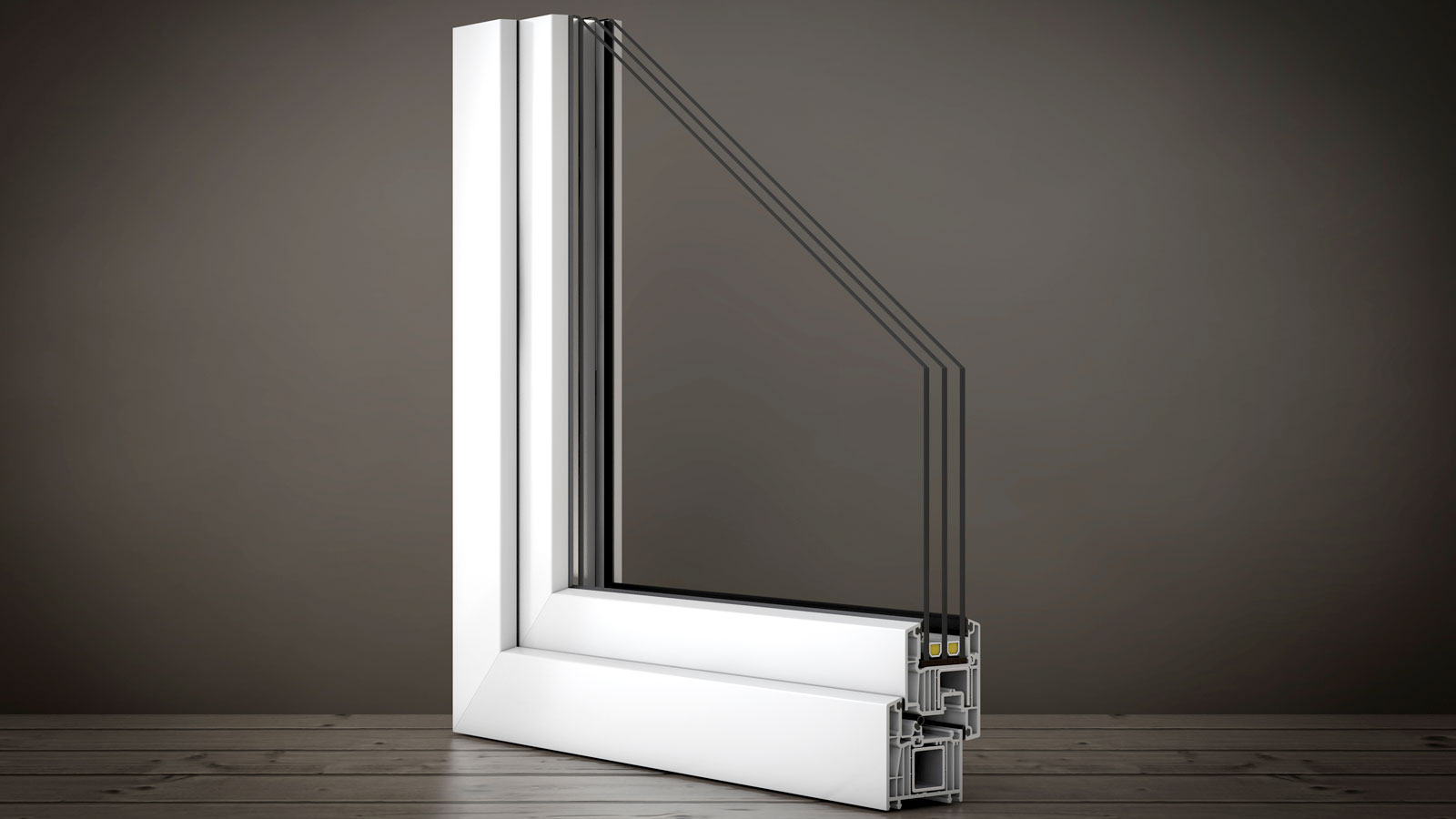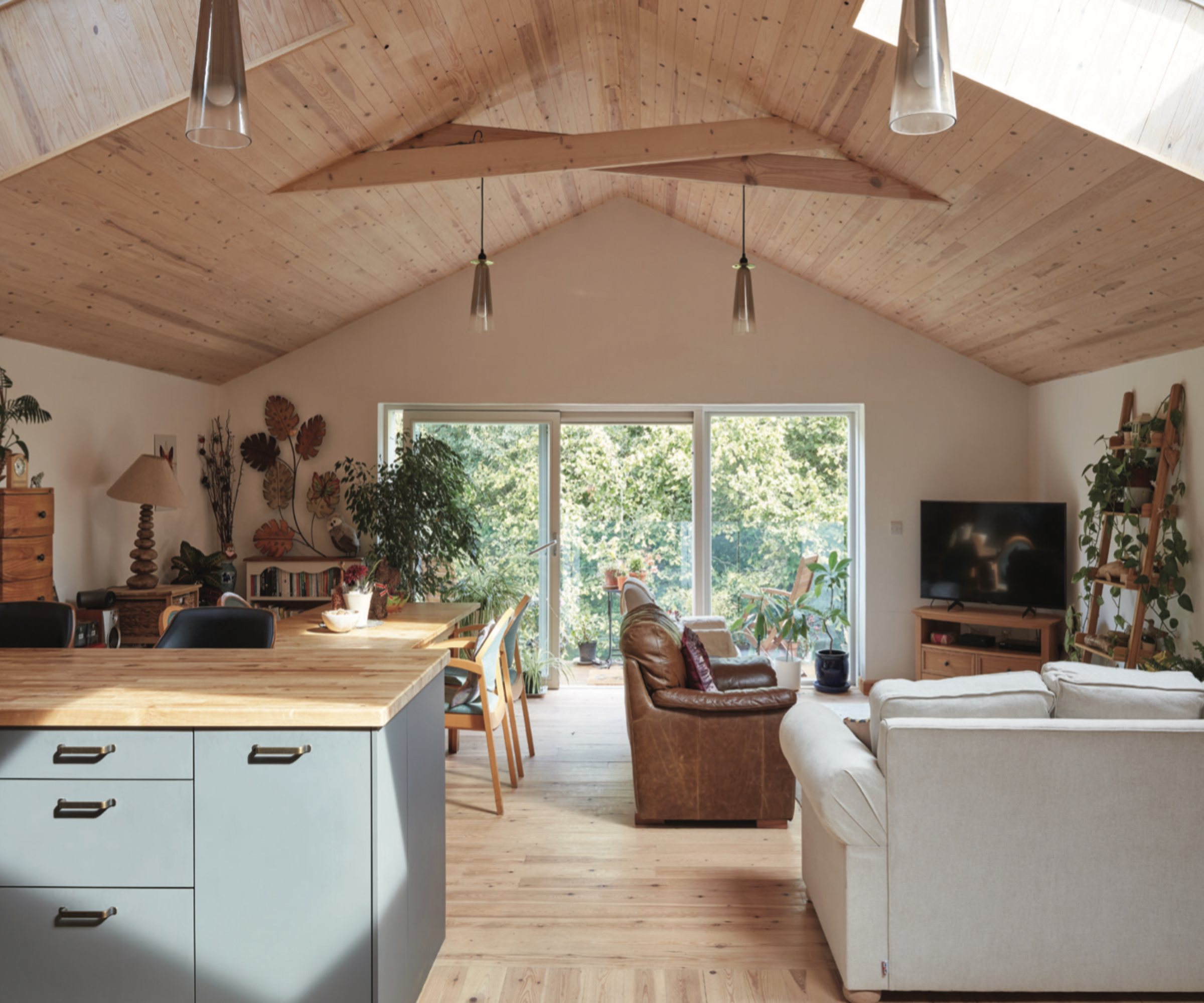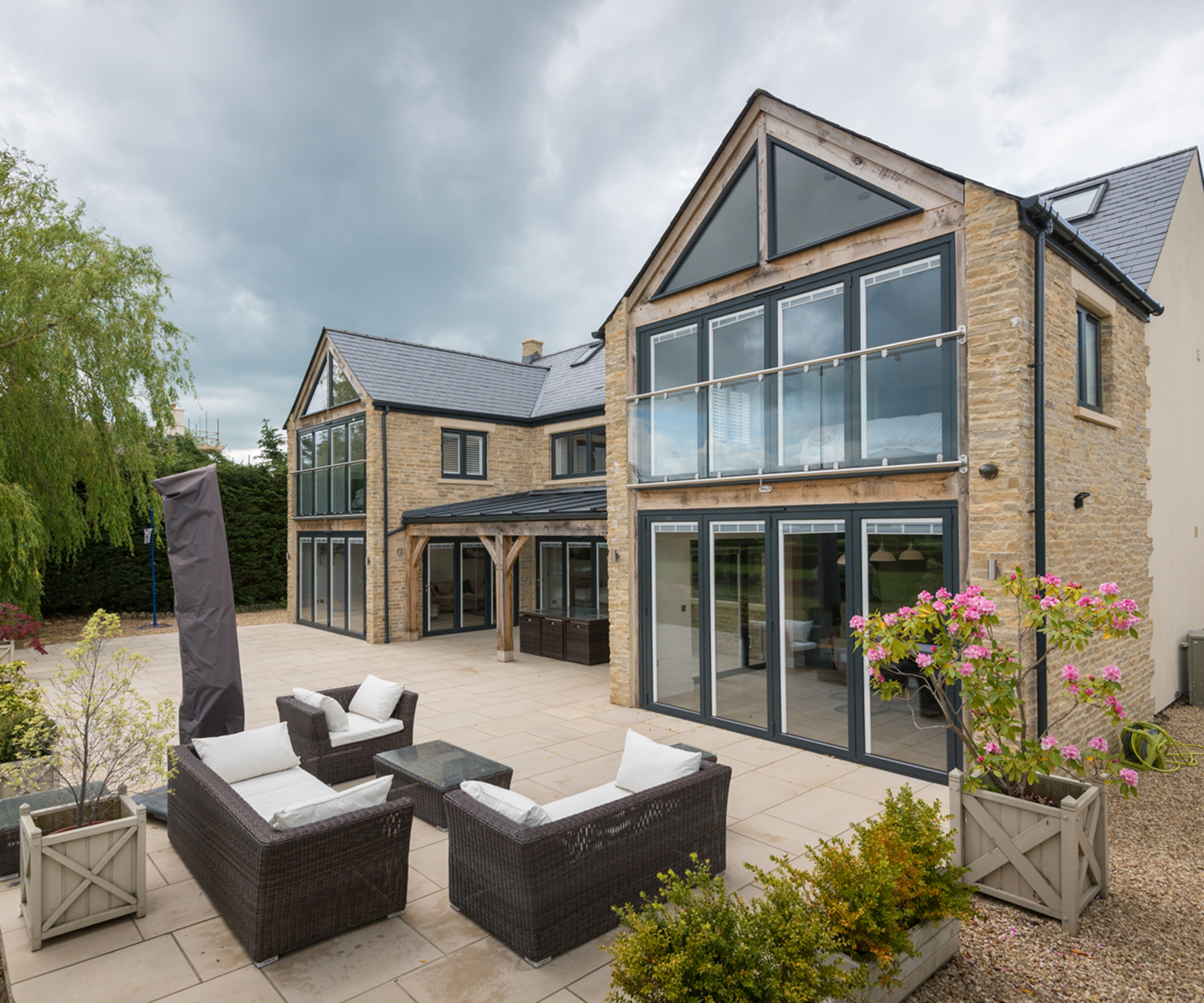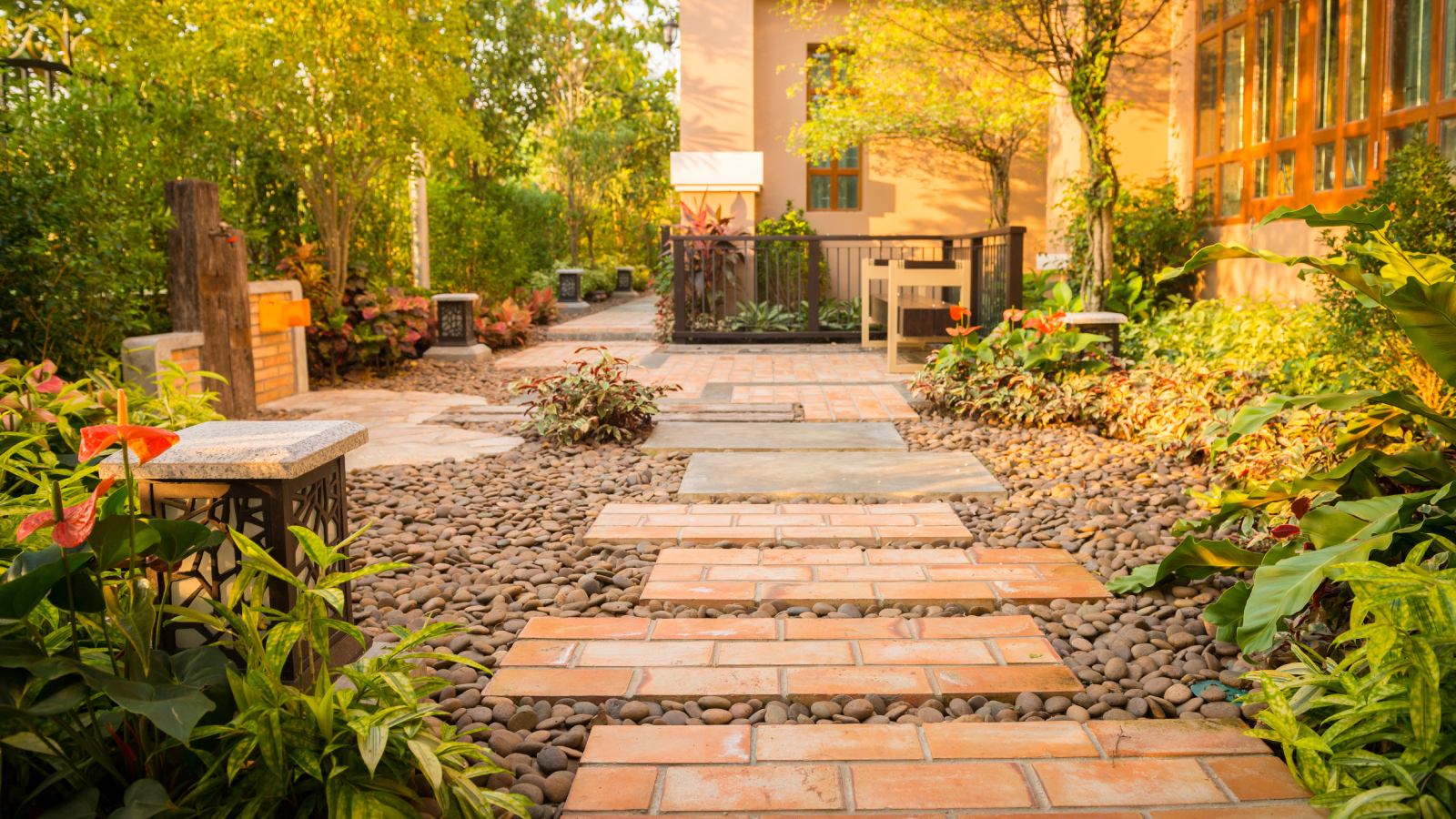Triple glazing costs: How much can you expect to pay for extra insulation?
Triple glazing costs more than double glazing but it has a host of benefits. Here we look at what they are and how much you will need to budget for an upgrade

What are triple glazing costs? It’s a question you’ll need to think about if you're looking at window styles and thinking of upgrading your windows and doors. Knowing how much extra you might have to pay compared with double glazing is crucial, especially if you are on a budget.
It's common sense to understand that triple glazing has plenty of plus points that make sense if you can afford it. An extra layer of glass will help ensure that your home will retain more heat, helping the environment and keeping bills down.
But with triple glazing costs not only influenced by the glass, but also by the different type of window frame, costs can soon mount up, making it important to understand the full extent of the pros and cons of triple glazing, what you can expect to pay for individual windows and doors and the cost for an average three bedroom home.
Triple glazing costs - how different are they to double glazing costs?
Whether you're replacing a single window or looking at a whole home replacement, your double glazing cost will be less than triple glazing costs.
And while uPVC windows will be your cheapest option in either material, as a guideline you can expect to pay at least a 20% increase if you switch from double to triple glazed windows.

Costs for a triple glazed window
“The cost of a triple glazed window is dependent on its size, the materials it is made from, and how complex it is to install," says Edward Stobart, technical sales manager at IDSystems.
“A large uPVC triple-glazed window installed on the second floor of a building for example, will inevitably cost a very different amount to a small aluminium triple-glazed window installed on the ground floor.”
So what can you expect to pay for one triple glazed window?
“The likely cost will be anywhere from £400 to £1200 per window," says Edward, "depending on what the window is made from, where it is going to be located, how many opening sashes it includes and how big it is.”

A long serving member of the IDSystems team, for the past 20 years Edward has advised and supported self-builders and renovators to identify the most suitable glazing options for their project. He has recently finished a complete renovation and remodel of his own home, transforming a tired 1960s house into a stylish modern family home.
Costs to triple glaze an average 3-bed house
If you're renovating a house it may be that you're looking to upgrade all of your windows and doors. If this is the case, what can you expect your triple glazing costs to be for a three bedroomed house?
Edward Stobart outlines what you should be prepared to budget depending on the type of window, the number or apertures and their sizes.
- New windows - £6,000 to £12,000
- New windows and a single- width door - £7,000 to £15,000
- New windows and two single width doors - £8,000 - £15,000
Triple glazing costs for different types of windows
The reason why your budget allocation for triple glazing costs can vary so much is partly down to window sizes and window style. uPVC is the most common type of window material and typically the least expensive.
Casement windows on the whole are the typical choice for most homes. These have hinged opening windows which vary in quantity depending on the size of the window.
You should expect to pay around £300 for a small triple glazed casement window, and around £600-£700 for an average size casement window.
As you might expect, larger windows will cost more. Sash windows will also be more expensive to their more detailed design and you should expect to pay around £1000 for a mid-size window.
Bay windows are the most expensive, and on average cost around £2000 for a three panel triple glazed version.
Triple glazed doors cost around £1000-£2000 each.

Pros and cons of triple glazing
If you are looking to invest in triple glazing costs what can you expect to get in return from your investment?
As you might expect there are plenty of plus points, but there are also downsides as Edward Stobart explains.
The benefits of triple glazing
Better thermal insulation
This means you will reduce heat loss from the building, which is better for the environment and can mean lower energy bills.
Meet Building Regulations
Depending on your project and the type of glazed doors and windows, triple glazing may actually be a ‘must-have’ in order to comply with thermal efficiency standards required by Building Regulations, in particular Part L.
"Also consider the rest of your house if building an extension," says Edward. "Thermal efficiency needs to be considered for the whole house, so opting for triple glazing in an extension when the rest of the house is less efficient will significantly limit any energy savings you make.”
Noise and security benefits
Daniel Cabrera, owner and founder at Sell My House Fast adds that triple glazing offers, “better sound insulation as it reduces noise pollution and is great for homes in noisy areas. And being tougher to break, due to their construction, they also offer more security."
The downsides to triple glazing
Higher investment
Triple glazing is typically more expensive to manufacture and install than double glazing.
Less savings in milder climates
In the UK there are greater savings to be made from insulating a home with triple glazing, especially in colder areas.
More frame and less glass
Heavier windows limit the size of openings because of the weight on the hinges, meaning you may end up with more frame and less glass. It’s important to do your research around installation and ensure you’re getting the right advice and the right option for your individual project.
Triple glazing costs FAQs
How long does triple glazing last?
“Triple glazed windows typically last between 20 to 50 years, depending on the quality of materials used and the conditions they are exposed to,“ says Edward Stobart. "But if you want your windows and doors to go beyond their expected life expectancy they will need regular maintenance to avoid having to invest in window replacements."
Does triple glazing stop condensation?
Window condensation happens when cold air hits warm air. Double glazing is better than single glazing, but is triple glazing better at stopping condensation?
“Triple glazing can help reduce condensation on windows by providing better insulation and maintaining a warmer surface temperature,” explains Edward Stobart.
“However, it does not completely eliminate condensation if there are high humidity levels inside your house.”
David Cabrera also notes that, “although triple glazing has a huge benefit of reducing the condensation within a home by keeping a more consistent inside temperature, it can sometimes lead to condensation forming on the outside glass during warmer months.”
Introducing triple glazing helps improve energy efficiency but what are the best types of energy efficient windows to choose? And, is secondary glazing an alternative to consider if triple glazing isn't for you? We reveal what you need to know.
Get the Homebuilding & Renovating Newsletter
Bring your dream home to life with expert advice, how to guides and design inspiration. Sign up for our newsletter and get two free tickets to a Homebuilding & Renovating Show near you.
Steve Jenkins is a freelance content creator with over two decades of experience working in digital and print and was previously the DIY content editor for Homebuilding & Renovating.
He is a keen DIYer with over 20 years of experience in transforming and renovating the many homes he has lived in. He specialises in painting and decorating, but has a wide range of skills gleaned from working in the building trade for around 10 years and spending time at night school learning how to plaster and plumb.
He has fitted kitchens, tiled bathrooms and kitchens, laid many floors, built partition walls, plastered walls, plumbed in bathrooms, worked on loft conversions and much more. And when he's not sure how to tackle a DIY project he has a wide network of friends – including plumbers, gas engineers, tilers, carpenters, painters and decorators, electricians and builders – in the trade to call upon.

